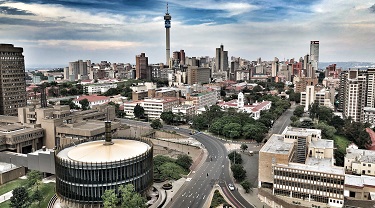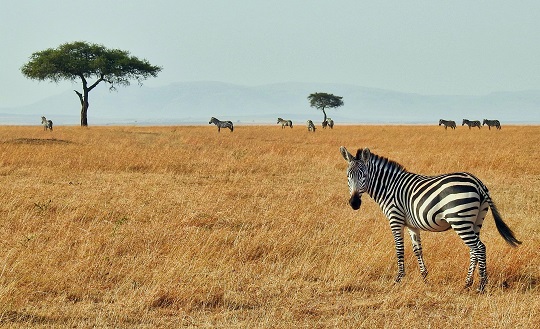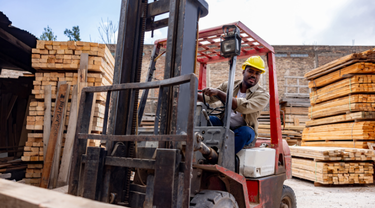

MyEDC account
Manage your finance and insurance services. Get access to export tools and expert insights.
Solutions
By product
By product
By product
By product
Insurance
Get short-term coverage for occasional exports
Maintain ongoing coverage for active exporters

Learn how credit insurance safeguards your business and opens doors to new markets.

See how portfolio credit insurance helped this Canadian innovator expand.
Guarantees
Increase borrowing power for exports
Free up cash tied to contracts
Protect profits from exchange risk
Unlock more working capital

Find out how access to working capital fueled their expansion.
Loans
Secure a loan for global expansion
Get financing for international customers
Access funding for capital-intensive projects

Find out how direct lending helped this snack brand go global.

Learn how a Canadian tech firm turns sustainability into global opportunity.
Investments
Get equity capital for strategic growth

Explore how GoBolt built a greener logistics network across borders.
By industry
Featured

See how Canadian cleantech firms are advancing global sustainability goals.

Build relationships with global buyers to help grow your international business.
Resources
Popular topics
Explore strategies to enter new markets
Understand trade tariffs and how to manage their impact
Learn ways to protect your business from uncertainty
Build stronger supply chains for reliable operation
Access tools and insights for agri-food exporters
Find market intelligence for mining and metals exporters
Get insights to drive sustainable innovation
Explore resources for infrastructure growth
Export stage
Discover practical tools for first-time exporters
Unlock strategies to manage risk and boost growth
Leverage insights and connections to scale worldwide

Learn how pricing strategies help you enter new markets, manage risk and attract customers.

Get expert insights and the latest economic trends to help guide your export strategy.
Trade intelligence
Track trade trends in Indo-Pacific
Uncover European market opportunities
Access insights on U.S. trade
Browse countries and markets
Get expert analysis on markets and trends
Discover stories shaping global trade
See what’s ahead for the world economy
Monitor shifting global market risks
Read exporters’ perspectives on global trade
Knowledge centre
Get answers to your export questions
Research foreign companies before doing business
Find trusted freight forwarders
Gain export skills with online courses
Get insights and practical advice from leading experts
Listen to global trade stories
Learn how exporters are thriving worldwide
Explore export challenges and EDC solutions
Discover resources for smarter exporting
About
Discover our story
See how we help exporters
Explore the companies we serve
Learn about our commitment to ESG
Understand our governance framework
See the results of our commitments
MyEDC account
Manage your finance and insurance services. Get access to export tools and expert insights.

In this blog post:
During these challenging times due to the COVID-19 pandemic, Export Development Canada (EDC) remains committed to helping Canadian businesses. In this series, we share our feet-on-the-ground insights about markets around the world and how they’re being impacted by the health crisis. In today’s last instalment, we visit Jean-Bernard Ruggieri, our chief representative for Africa, based in Dubai.

Specialists of this pandemic have warned and feared the worst for Africa, but the continent is facing fewer serious issues than expected—at least for now. The rates of infected people and casualties remain relatively low compared to other parts of the world. This is likely due to the large proportion of youth in most countries in Africa. Although the local governments were the last in the world to impose lockdowns, restrictions are now easing at the same time as Europe’s.
Unfortunately, COVID-19 hit just when the new African Continental Free Trade Area (AfCFTA) was about to launch. The goal of the new agreement is to enhance trade relations between Africa’s 54 countries, attract foreign investment and develop new sectors besides the traditional ones, like extractives (mining and oil and gas) and commodities (agriculture, gold, coal, to name a few).
As the world’s second-largest continent, Africa is very diverse, so the affected sectors are different for each market. In a nutshell, the countries most impacted are the least diversified and depend mainly on extractive resources. Oil and gas producers, like Nigeria, Angola or Algeria, as well as mining countries such as Botswana, Tanzania and South Africa, are bracing for tough times and severe blows to their budgets in the coming months—if not years. Some will have to delay important infrastructure projects, which are needed to develop their economies and attract investors. At the same time, many governments have already asked for support from the International Monetary Fund (IMF), and the G20 is working on debt relief, which could help some projects continue with little or no delay.
Our new webinar will show Canadian companies how to access the financial relief available to you.
Understandably, African companies and governments want foreign sellers to commit to their markets and take the time to meet with them in their respective countries. But it’s now much more difficult—though not impossible—to travel to and within Africa. As previously mentioned, some projects and contracts are now frozen until the governments have a better understanding on how they’ll be able to finance them, so patience is needed. One of the main hurdles for business development in Africa is the financing gap between what is needed and what is being offered.
Foreign financial institutions active in the continent have been asked to refocus their domestic markets and sectors, which will see this gap grow in the future. But Africa is a creative continent with an active and resilient young entrepreneurship force. New opportunities will open up once the pandemic is over.

Our customers are still active in Africa, but delays are expected, although they don’t seem to really fear pushback from local buyers. The number of requests for information and support remains the same, which is quite positive.
We’re in touch with the Canadian companies established in the continent, as well as their buyers. We’re also preparing ourselves for when business returns to a new normal. For example, some crown companies, including EDC and the global affairs department of the Government of Canada, are working on trade missions in Africa to open the door to new opportunities for Canadian companies. We’ve already selected a handful of countries for the two coming years and will continue to plan for these events to ensure everything is in place when the time is right.

Discover Canadian tariffs on U.S. goods, CUSMA review and EDC support for managing trade risks.

Global growth stabilizes but faces ongoing policy shifts, tariffs and geopolitical uncertainty.

Keep track of the international markets that matter to your business. Get the latest financial and macroeconomic information for both developed and emerging markets.

Tariffs and inflation weigh on growth in the U.S., Canada and Mexico in 2026.

Globalization is evolving, not reversing, as technology and trade keep the world connected.